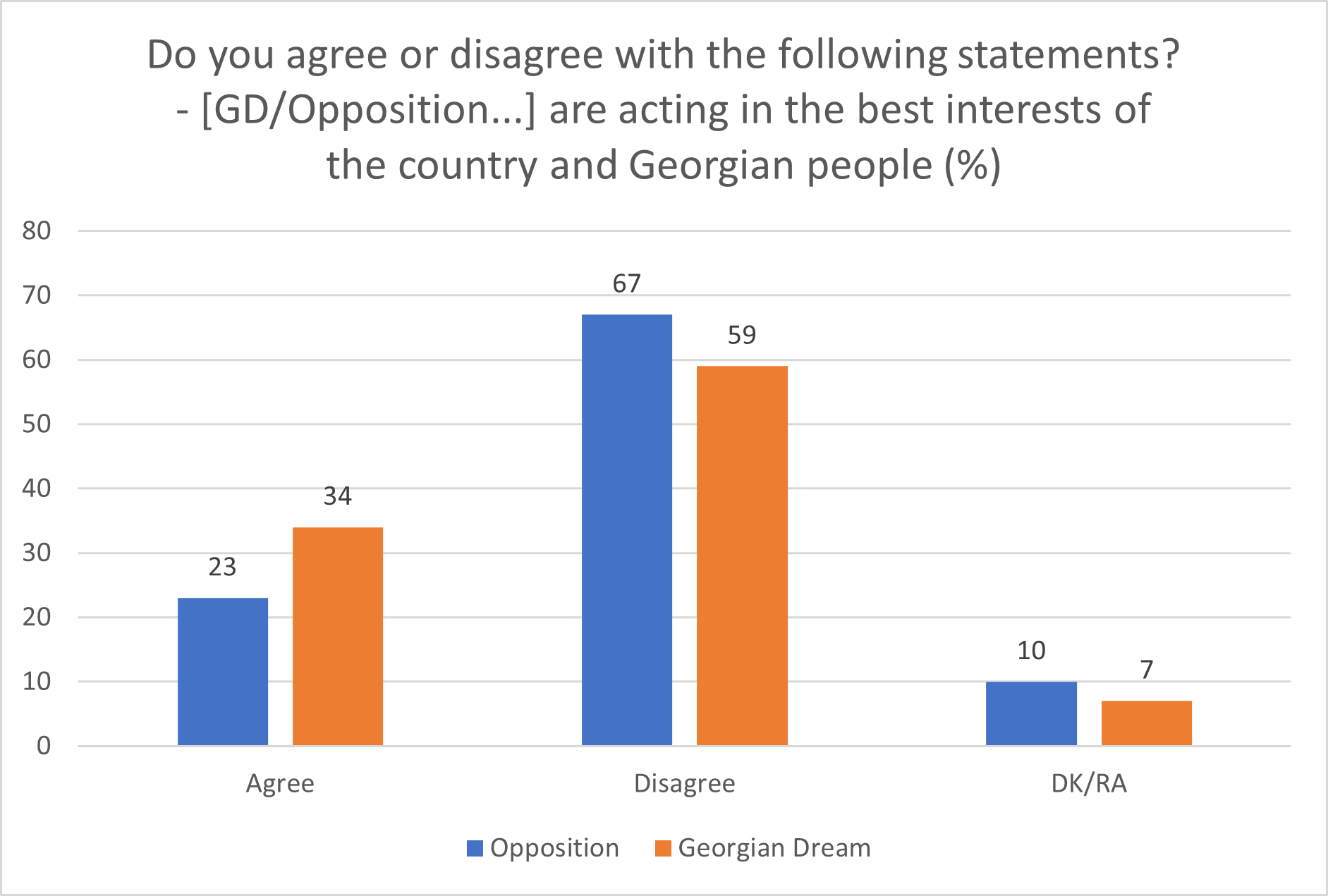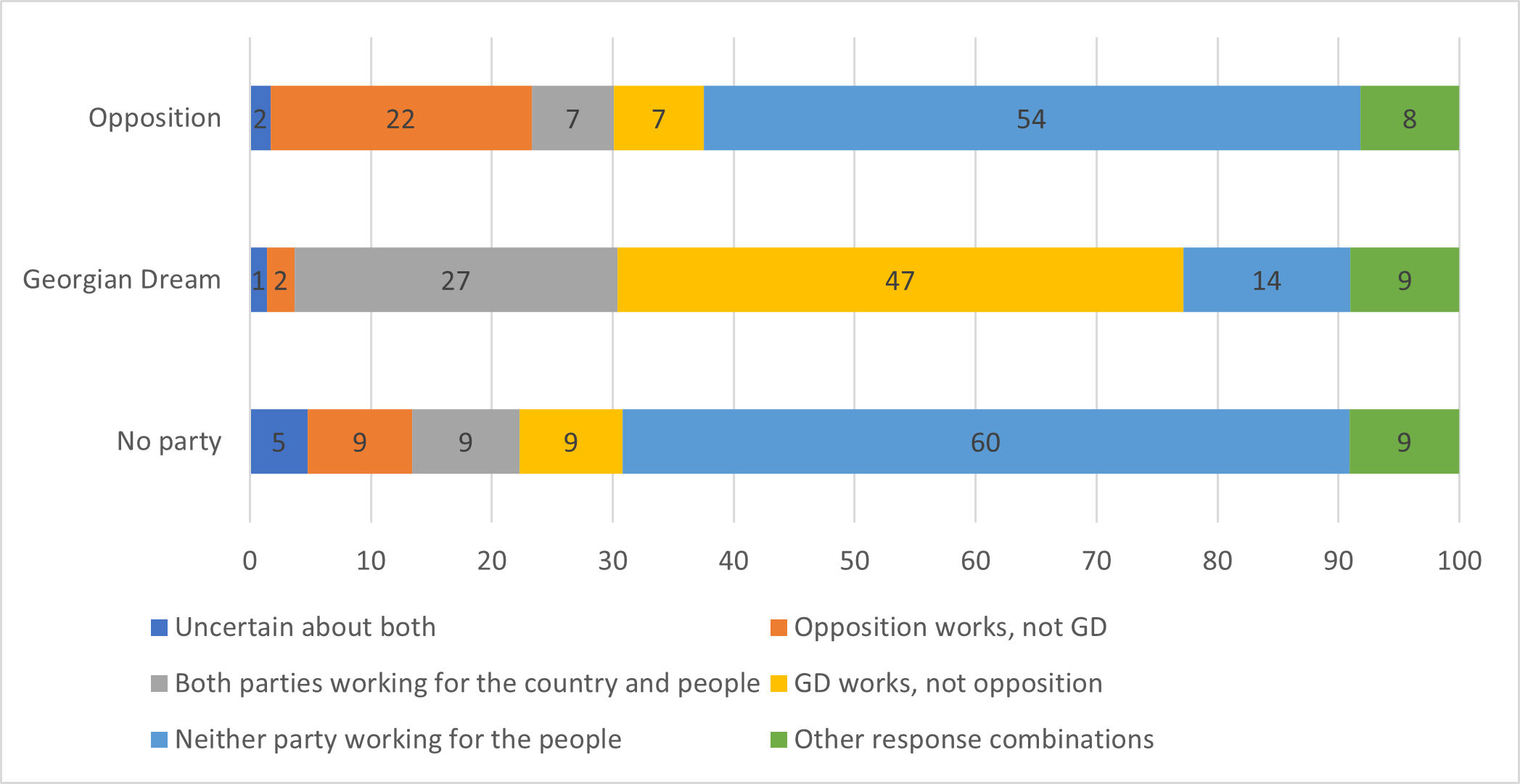
A recent CRRC Georgia and NDI poll suggests that roughly half of the Georgian public, regardless of their partisan affiliations, believe that neither the opposition nor the ruling party serves their interests.
Political polarisation in Georgia has little to do with opinions on policy. An analysis of numerous questions on the regular NDI and CRRC polling suggests that the public has consistent preferences and concerns, no matter the party they support: Georgians tend to want a pro-Western foreign policy for the country, they are concerned about the economy’s development and jobs, and they tend to be socially conservative.
While what the public wants is relatively clear, Georgians do not see the ruling Georgian Dream party or elected opposition figures working towards providing that.
The most recent CRRC and NDI survey suggests that a majority of the public thinks that neither the opposition nor Georgian Dream serves the interests of people like them, although 11% more of the public believe that Georgian Dream serves the interests of people like them.

About half of the country (46%) says neither party acts in the best interests of Georgia or the Georgian people.
The data show some partisan bent. About one in five (19%) say that the ruling party is working in the best interests of the country, while the opposition is not. One in ten (10%) thinks that the opposition is working in the interests of the country, while Georgian Dream is not. Only one in eight (13%) think that both parties are working in the best interests of the country.

At present, 50% of the country supports no party or has refused to answer which party they support; 27% support Georgian Dream and 24% support an opposition party.
When the above data is broken down by partisanship, the data show mistrust among partisans and non-partisans alike. Nearly half of Georgian Dream’s supporters (47%) report that their party works for the people, while the opposition does not. In contrast, 54% of opposition supporters and 60% of those that report they do not support any party say that neither the opposition nor Georgian Dream is working for the people. One in five opposition supporters (22%) report that the opposition works for the people, but Georgian Dream does not.

The data should give politicians pause, whether they belong to the ruling party or the opposition.
If most Georgians believe their political parties are not working in good faith, that might be an indicator of a larger issue of miscommunication — whether or not the public’s fears are unfounded.
Moving away from the relentless accusations and infighting that have characterised Georgian politics in recent years and instead adopting a positive vision for the country might help Georgia’s political parties regain the trust of the public.
This article was written by Dustin Gilbreath, a Non-resident Senior Fellow at CRRC Georgia. The views presented in this article are the author’s alone and do not reflect the views of NDI, CRRC Georgia, or any related entity.
The data used in this analysis is available here.








